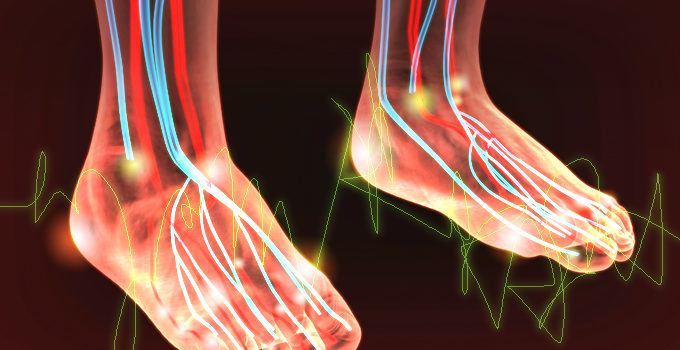

Brain Matters: Managing Neuromuscular Conditions
by William Buxton
Do your feet tingle all the time? How you can combat neuromuscular disease and in turn protect your brain.
We all want to maintain good memory as we age and there are many ways to remain cognitively sharp. Staying physically active by exercising and socially active through activities with friends and family are some of the best-established means to protect memory. While eating and drinking are often central to those times, rethinking what we consume can often give us more quality years of enjoyment.
Over time many individuals develop disorders of nerves and muscles in the arms and legs resulting in more falls while walking and hand weakness. The sensation of feeling is greatly reduced, and our physical, cognitive and emotional health often suffers.
Nerve and muscle disorders can manifest in a number of ways. In this article, we’ll focus on peripheral polyneuropathy, in which the nerves in the feet and sometimes later in the hands stop working well.
Symptoms include numbness, tingling, or altered feeling in the feet sometimes followed by weakness in the ankles and toes. Many conditions cause similar symptoms of numbness or weakness in the extremities, so it’s important to get a diagnosis.
In developed countries, the two most common causes of peripheral neuropathy are diabetes (even pre-diabetes) and alcohol.
If pre-diabetes is found during a blood test, exercise/weight loss and avoidance of sweets and simple carbohydrates will be essential steps you’ll be glad you pursued.
Alcohol gives the nervous systems a one-two punch, affecting our nerves’ ability to interact with our environments and directly causing damage to our brains. Anything more than one drink a day is toxic to the limbs and brain. That means only one glass of wine, one can of beer, or a single shot of liquor. Treatments are most effective soon after diagnosis and by addressing peripheral neuropathy early, you can optimize your quality of physical and brain health.
Recognizing the interconnected roles of cognition, balance, and nerve and muscle function is essential to overall wellness, helping you maintain your health from mind to head to toe.
For more information, please call 310-582-7641 or schedule a consultation on the Pacific Brain Health Center website.
Adapted from the original article published in the March 2019 issue of the Santa Monica Star

Dr. William G. Buxton is Director of Neuromuscular & Neurodiagnostic Medicine and Fall Prevention at the Pacific Brain Health Center. His streamlined methods to optimize safety in outpatient settings, especially related to fall prevention among neurology outpatients have reduced falls and have even trended toward fewer falls among individuals with dementia, a population in which fall prevention efforts had previously been viewed as impractical. Dr. Buxton also has interests in neuropathies, especially those secondary to autoimmune disorders and other systemic processes.
About the Author

William Buxton
Dr. William G. Buxton is Director of Neuromuscular & Neurodiagnostic Medicine and Fall Prevention at the Pacific Brain Health Center. His streamlined methods to optimize safety in outpatient settings, especially related to fall prevention among neurology outpatients have reduced falls and have even trended toward fewer falls among individuals with dementia, a population in which fall prevention efforts had previously been viewed as impractical. Dr. Buxton also has interests in neuropathies, especially those secondary to autoimmune disorders and other systemic processes.
Last updated: July 26th, 2019